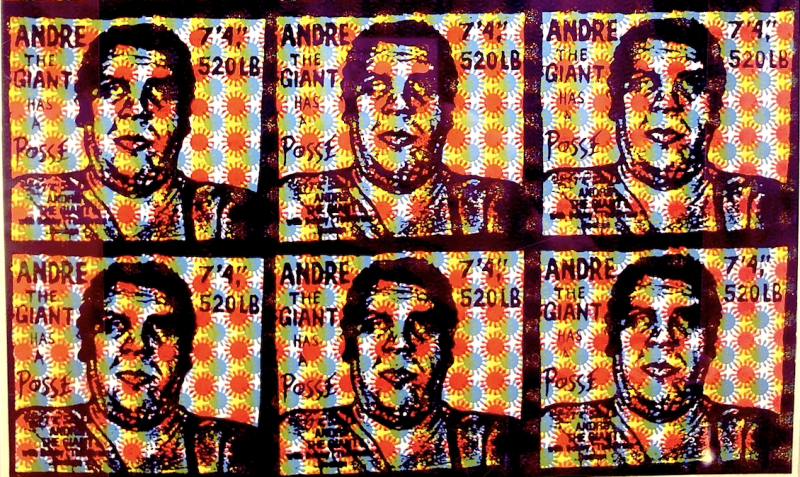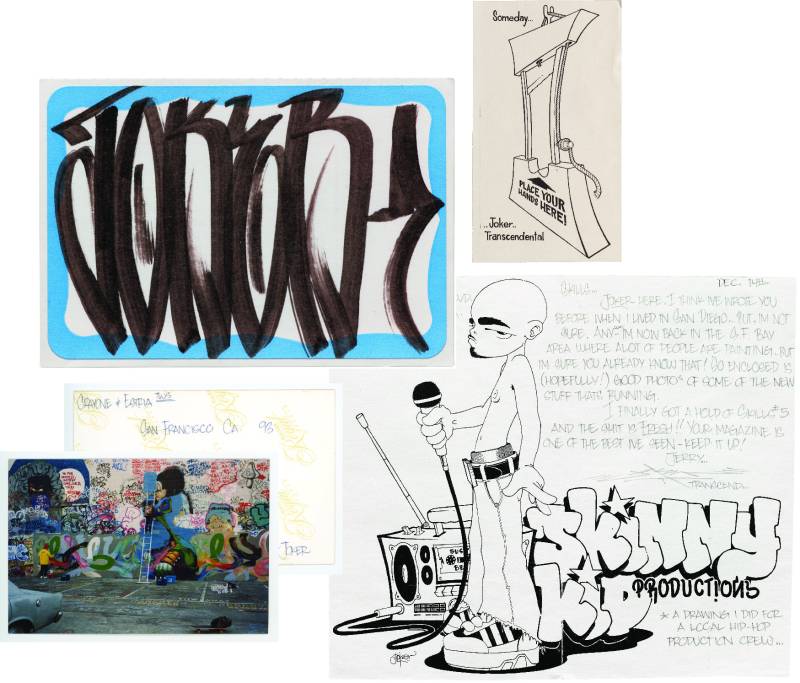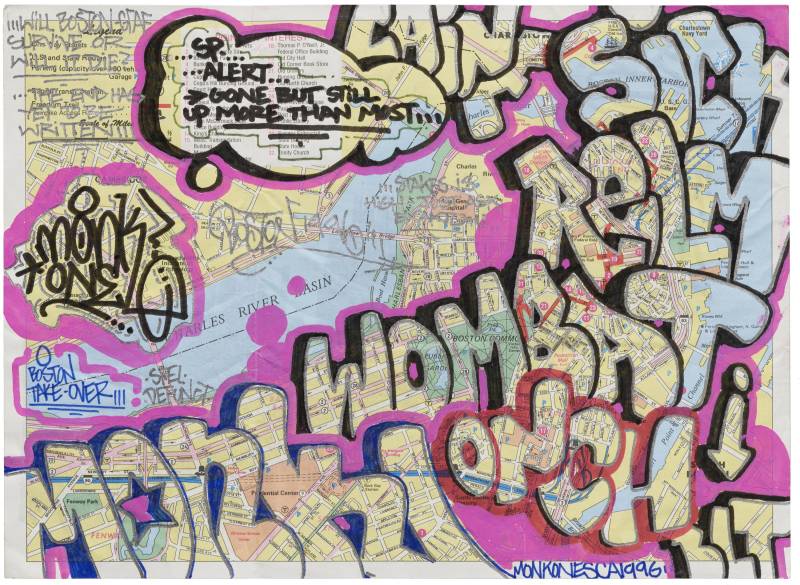If you were a skater, punk or hip-hop fan in the ’90s, graffiti zines were just another part of the culture. The hand-stapled, photocopied scene reports were a product of graf writers and street art enthusiasts banding together, taking photos with cheap point-and-shoot cameras, developing the images, and then collaging the best ones to share with eager readers.
Subscription to Mischief: Graffiti Zines of the 1990s, a new exhibition at Letterform Archive, seeks to capture that community as it was before the new millennium rolled in. It’s a time machine for anyone who was there the first time around, and a valuable glimpse into a since-changed underground scene for those who weren’t.

The small-but-dense exhibition was curated by Letterform Archive’s Kate Long Stellar and Rob Saunders, working in tandem with Greg Lamarche (a.k.a. Sp.One), the artist and former publisher of Skills magazine. Fellow graffiti writers Kel Troughton and David Villorente (a.k.a. Chino BYI, former editor of The Source magazine’s Graf Flix column) also curated. As such, the final result is an authentic look at the underground scene from those immersed in it. Many of the items on display come from Lamarche’s own personal archive of graffiti-related artifacts he’s faithfully collected for more than three decades.
Glimpses of early works by street art giants like Barry McGee, Shepard Fairey and Steve Powers share equal billing with handwritten correspondence between those in the subculture at the time. The letters are often works of art in and of themselves, with highly stylized lettering and adjoining sketches. Their content is also a reminder of just how time- and effort-intensive these kinds of projects were in the days before the internet. “Take your time with my pictures,” a writer named The Dekster says in one letter. “I’m in no rush to get them back. I know they are in good hands.”

Though Subscription to Mischief is focused largely on the east coast — starting with the New York subway art of the ’70s and ’80s — it also reflects a global community. Zines from as far afield as Copenhagen, London and Stockholm are included. San Francisco is represented by Girlzbomb, a zine by Jocelyn Superstar about female graffiti writers, and Graffiti, by Nate Smith and Josh Lazcano. Artwork from longtime SF resident Mike Giant is also featured via a 1997 issue of Huffer.



